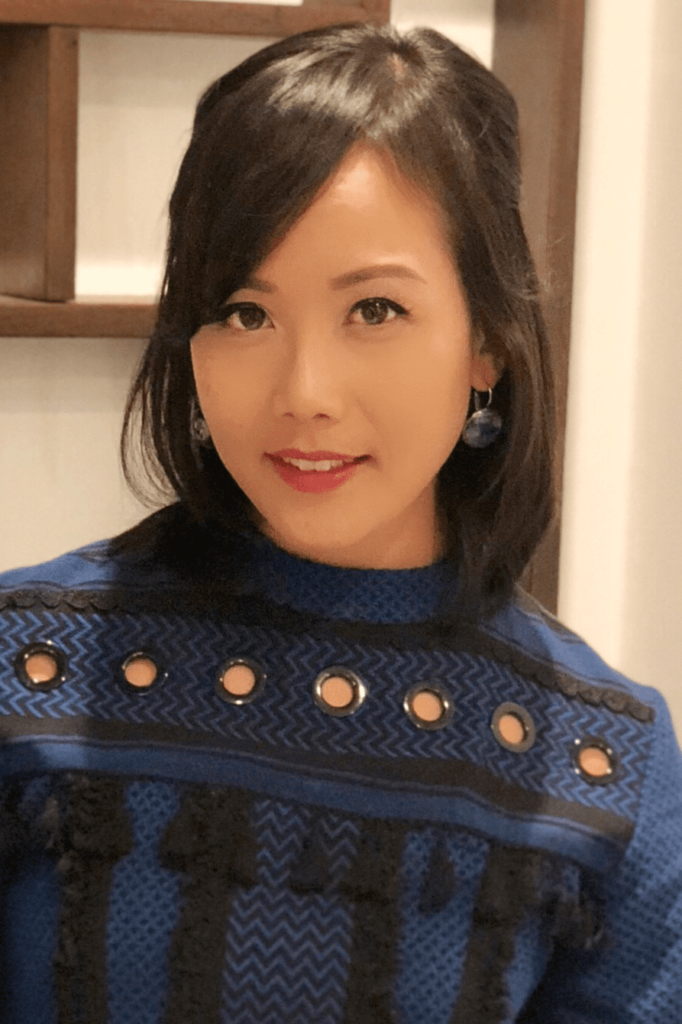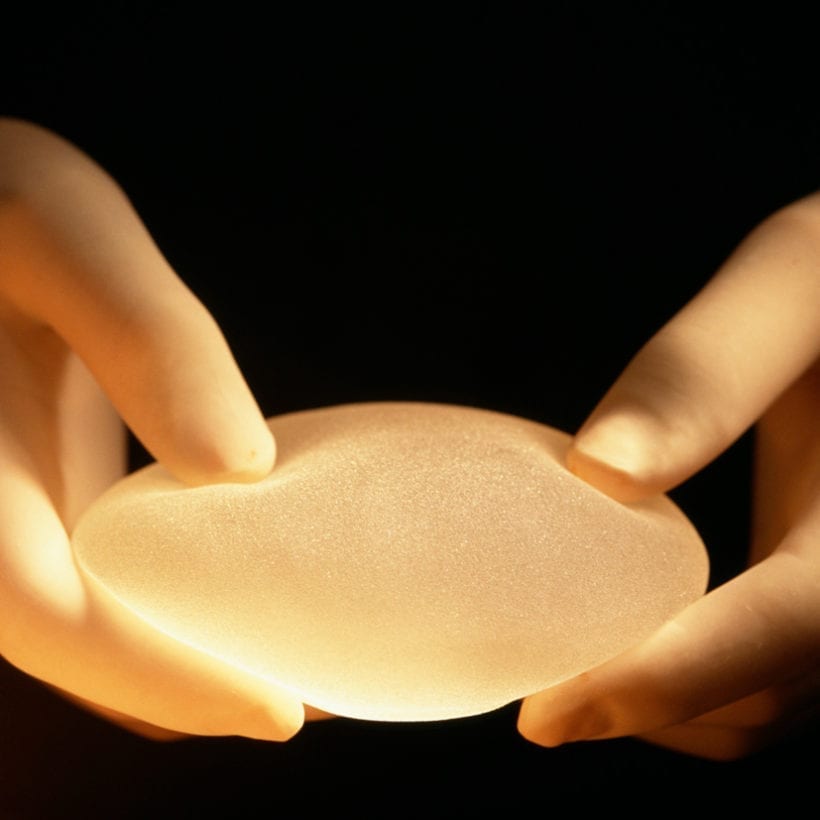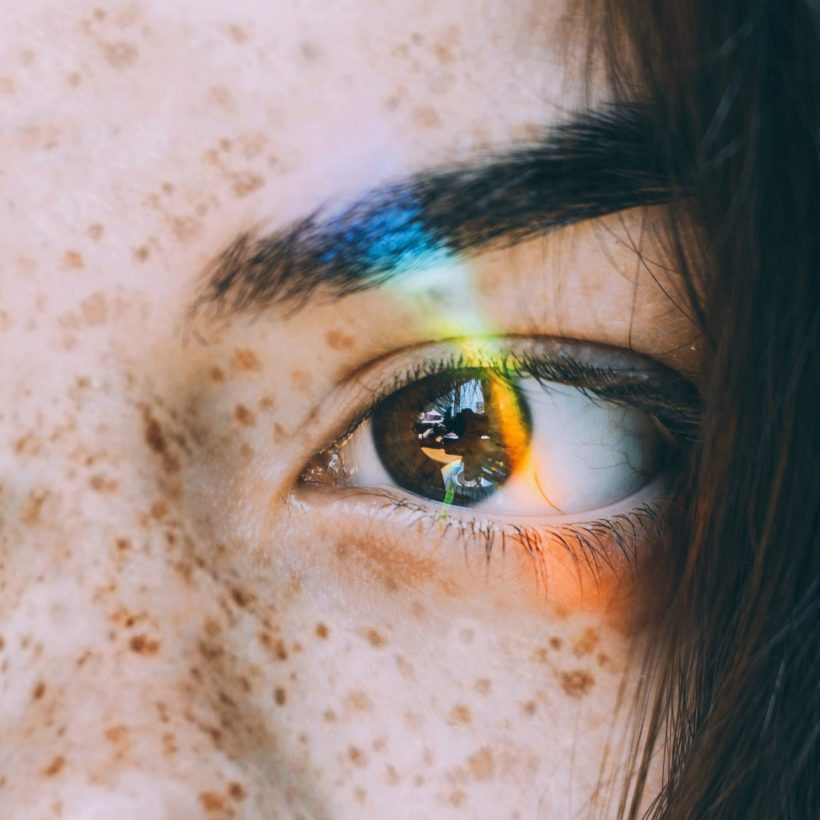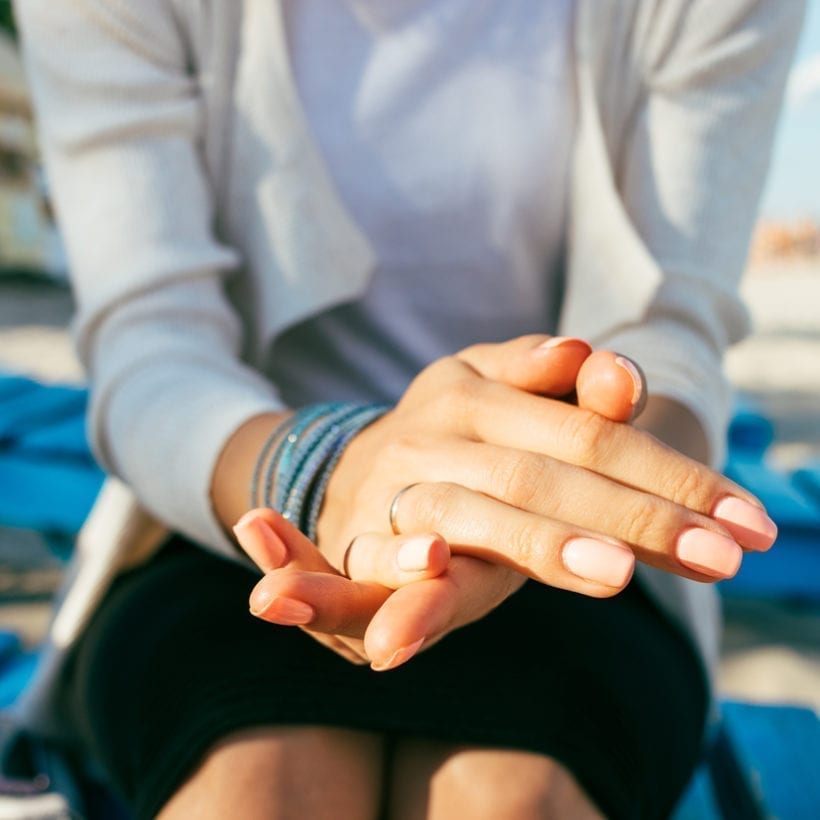National Cancer Survivors Day always falls on the first Sunday in June, and this year it’s June 6th. The day is meant to celebrate those who have survived or are in remission, inspire those who are currently living with cancer, and shed light on the fact that life can be rich and full even after a devastating diagnosis (a staggering 39.5% of people will receive a cancer diagnoses at some point in their lifetime, according to Cancer.gov).
We spoke with three survivors about how cancer has completely changed their lives and made them do things they may have otherwise thought were impossible (like writing a children’s book, opening a yoga studio, and creating an online platform showcasing the stories of cancer patients).
Stephanie Chuang

In 2017, Stephanie Chuang was two months away from getting married when she developed fatigue, swelling to face and upper neck area, and a cough. Less than 24 hours after going to the doctor, she found out she had cancer. Now, Stephanie, 35, has created a free resource known as The Patient Story, which is a platform of stories from cancer patients, survivors, and caregivers told in human terms, not medical jargon. The platform helps newly diagnosed patients and their families start to understand what may lie ahead in their cancer treatment and life.
Sunday Edit: Can you share a bit about your cancer diagnosis?
Stephanie Chuang: I was diagnosed with a cancer type I’d heard maybe once before — lymphoma, specifically, a subtype of non-Hodgkin lymphoma that seems to hit more young women. I was two months from getting married, starting my 30’s feeling like everything was “falling into place.”
Nothing prepares you for those words that are echoed in movies. When I heard them, I was sandwiched between my then-fiance and my sister on the couch, my cell phone pressed up against my ear, and anxious to try and assess everything about this doctor’s voice to figure out the answer before she gave it.
I didn’t have much time to suss anything out. She started the call with, “I’m so sorry, Stephanie.” What followed was that they’d found a big mass in my chest, it was probably something called “lymphoma,” and I needed to get more specialized help and care in oncology. I had already started crying when I repeated her words out loud so that my family could hear them, too, but when I hung up, I started bawling.
The doctor actually ended up calling me back a couple of minutes after we hung up to add that the mass was pressing against a major artery that drops blood into the heart, and that perhaps I should go to the emergency room. If I was confused and overwhelmed before, that sent me over the edge.
SE: What was it like to receive a diagnosis when you had so much going on with your career and wedding?
SC: It felt like I had accidentally kicked over a domino and started a chain reaction of chaos, after having painstakingly taken careful steps to lock down my “happy ending.” Quite honestly, the bar for “happy” in my life sunk to an abysmal low. Instead of making sure I could fit in my wedding dress and lockdown great wedding dance moves, I was thinking about whether I’d be able to walk down the aisle at all.
I had never thought about cancer, especially not at this age. I had read the statistics from the American Cancer Society about how many people would get cancer eventually in their lives, but those numbers were never supposed to be about me.
The night I got the cancer call, a doctor friend advised that I check myself into the emergency department to get the patient process started because getting an oncology appointment might take a while. That kicked off a week in the hospital, getting poked and prodded, so doctors could figure out exactly the stage and what type of lymphoma I had. I felt strong and ready to take everything on during that week, but it didn’t take long for me to start to fall into a dark mental space.
SE: How has being a cancer survivor changed your life?
SC: This may sound odd to others, but I feel grateful for the experience. Would I wish cancer on anyone? Never. But my life is completely different and I have felt a greater sense of purpose ever since. Maybe it’s the desire to want the trauma to mean something and have a positive impact, to take out any feeling of victimhood, but I realized that I wanted to help others who would endure the same terrible experience of getting diagnosed with cancer.
I had been a TV news journalist up until I got diagnosed, with a passion for telling people’s stories. I decided to quit the career I’d built for a decade and try to contribute back to the world. Despite the overload of information at our fingertips thanks to the internet, I could not find what I was looking for when I was trying to understand what my life would look like in the upcoming months: true patient stories.
Everything I found amounted to three paragraphs or was written in a blog form, making it hard for me to find answers to specific questions I had. So I started a platform to fill what I felt was a void, a website that could democratize access to this kind of information for everyone, everywhere, at any time.
That was the genesis of The Patient Story, which strives to help newly diagnosed patients and their families through in-depth survivor stories published in FAQ format, along with treatment timelines. While doctors are experts in the medical sense, I believe a lot of what patients and caregivers are searching for is the human answers, without the jargon and the stats — that can only be given by other patients who’ve been through the experience, themselves.
I’ve interviewed hundreds of people at this point, people who also feel a greater sense of purpose after surviving cancer. I appreciate the opportunity to not only learn the stories of these incredible people but to be able to share them with thousands out there who feel alone and confused. The need is out there — the number of people visiting us continues to grow.
SE: Do you have any advice for individuals or families who are going through cancer treatment?
SC: My first piece of advice is to take every piece of advice with a grain of salt. Even with The Patient Story, I often preface by saying no two people track the exact same, but there are definitely shared experiences. Themes, if you will, like the need for mental health care, “scanxiety,” which is the anxiety that plagues us waiting for results of a scan, and even survivorship, which is the transition from being a patient under constant care to a life without that plan.
On that note, just know that you are not alone. Something I wish I would have done earlier sought out more patient connections and dive into the community out there, which is why I created The Patient Story. The hope is to present stories that are authentic and allow for a deep dive so that people can see that others understand their experiences. As much as our family and friends want to be there for us, they really can’t get to a certain level. Feeling connected gives people more space for healing.
I believe now more than ever that a patient who is connected to other patients not only feels better but may do better overall as an empowered and educated patient. There are so many tips that can help you through cancer treatment. If you don’t want to seek the information, designate someone in your circle to do it. Amplifying your voice in your medical care and treatment decisions can lead to better outcomes.
There are also so many new treatments on the horizon, making it a more hopeful time for many cancer patients out there. It’s another area I’m zeroing in on — to help bridge the gap between knowledge typically bogged down by “medicalese” and the people, like me, who are thrust into this world but want to better understand it.







